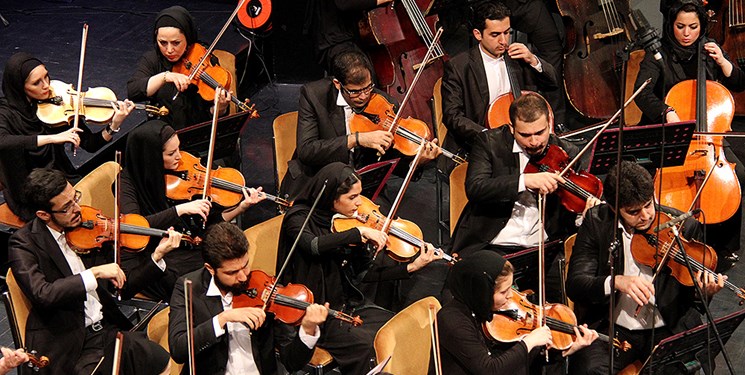
Following an interview by Mehdi Salem, the director of the Rudaki Foundation, with the “Our Music” website, a response from the fired musicians was published in response to this conversation, which you read:
The National Symphonic Orchestra is not a place to discover talent Mr. Mehdi Salem, greetings and respect Since a few days ago, an interview with you was published by the “Our Music” website, some issues were discussed that surprised the experts and other readers and the reader’s mind goes to this side that your advisers deliberately or inadvertently knowingly or unknowingly have a wrong and misleading purpose. Therefore, we decided to accompany you as experts in this profession and art and those who have studied music in high school and university for nearly 20 years and have been present in the highest artistic degree of the country, namely the symphony orchestra, and convey some issues to your esteemed opinion: 1- In none of the orchestras around the world, salaries are paid based on position and seat, but based on the years of presence of that musician and experience in the orchestra. This is a misconception that the seat of musicians is like paying for a ticket seat and position of the audience. The musicians’ protest was based on the wrong principle of this issue. 2- Regarding the selection of musicians by the orchestra leader, it should be noted that any leader, especially the invited leader, cannot select an orchestra musician because the musicians are fixed orchestra hosts and guest leaders and incidentally this issue is reversed and this orchestra leader is first as a guest leader in one concert will be present and by the musicians and then according to the satisfaction of the audience will be selected for example selection of leader by musicians of Berlin Philharmonic Orchestra is an example in this case.
Another issue that is worth mentioning is the examination of the orchestra in the whole world, in no orchestra in the world does the main body of the orchestra change since each city in each country has several orchestras of parliament, symphony philharmonic, ballet and opera One musician from one orchestra to another orchestra based on taste or better income changes location and does not lose his job.
Also, musicians retire after 30 years of being in the orchestra, so the orchestra directors publish a call for only one or more specific positions and vacant posts in the orchestra.
Expressing the issue that the Rudaki Foundation seeks to discover
talent; In the mind of the audience, reminiscent of talent show programs, but the symphony orchestra of the countries is not a place to discover talent, but every musician must go through the difficult way of studying this art and grow from the conservatory and music conservatory under the supervision of caring and professional teachers, continue his studies at the university and then, with a single exam in front of a jury made up of the musicians of the same orchestra, get into the orchestra and enter the professional world alongside other experienced musicians.
Pay attention to the Berlin Philharmonic Orchestra, which is one of the most professional orchestras in the world. In a country like Germany with a population of 84 million or America with a population of 340 million people, are there no other talents that can find their way to the mentioned orchestras?
They definitely have, but the directors know that the essence of an orchestra is that the musicians playing together and the experience of playing an orchestra and ensemble and harmony between the musicians, and the main body of the orchestra has a special value.
6- Since you mentioned receiving the musicians’ salaries during the Covid era, we must inform you that, as you know, the basis of musicians’ salaries is not based on the salaries of an expert in a profession and field; Rather, it is the lowest base salary and based on labor rights, and it should be noted that in 2014, the Rudaki Foundation did not pay the salaries and insurance of the musicians in full, and this year was not counted as part of their work records. What is the orchestra like in Germany? The interview of the main orchestra player and tympanist of one of the most professional orchestras in Germany (Gwandhaus Leipzig Orchestra) explains the correct method and the rule of the orchestra that is common in the world. You know that after 6 months of trying to improve the current situation, unfortunately, we faced the narrow-mindedness of the orchestra’s management, and contrary to the respected opinion of the Rudaki Foundation, none of them were looking for blackmail, but only sympathetic and concerned about the plight of the situation. We are the Tehran Symphony Orchestra.









